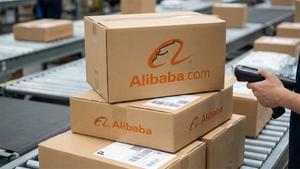
Senior research scientist and software engineer at Chicago State University, Deekshith Alladi, has published his latest research paper, “Novel Adaptive AI-power Insulin Navigator for Diabetes Using Machine Learning,” examining the development and implementation of AI-driven insulin delivery systems that dynamically adjust insulin dosages based on real-time glucose monitoring and predictive analytics. This novel device gives patients better glycemic control, less dangerous blood sugar swings, and more precise insulin delivery, which helps with diabetes treatment and individualized diabetes care.
Deekshith Alladi is a senior software engineer and research scientist in the computer science department at Chicago State University. His work focuses on creating novel solutions to pressing healthcare issues, and he has a solid background in artificial intelligence and machine learning. Alladi has gained attention from his peers and the larger medical community for his commitment to using technology to improve patient care.
What is The AI-powered Insulin Navigator?
This AI-powered insulin navigator can easily integrate continuous glucose monitoring (CGM) devices with advanced machine learning models. The CGM sensors collect real-time data on a patient's blood glucose levels, transmitting this information to the AI system. The machine learning algorithms analyze the data, considering factors such as historical glucose patterns, dietary intake, physical activity, and even stress levels.
The system uses predictive analytics to forecast future glucose levels and dynamically adjusts insulin dosages accordingly. This proactive approach helps maintain blood glucose within the target range, minimizing the risk of hypoglycemia (dangerously low blood sugar) and hyperglycemia (excessively high blood sugar).
How Is Insulin Delivery Affected by Adaptive AI?
Alladi's adaptive AI-driven technology adopts an automated, real-time approach in contrast to conventional insulin delivery systems, which need patients to enter data and modify their own dosages manually. The system improves its predictions over time to provide the exact quantity of insulin required at any given time by continuously learning from the patient's glucose patterns and responses.
Observations in Patient Outcomes
1. Clinical evaluations of the AI-powered insulin navigator have demonstrated significant improvements in glycemic control among patients:
2. Reduction in HbA1c Levels: Patients experienced an average decrease of 1.2% in HbA1c, indicating better long-term glucose management.
3. Increased Time-in-Range (TIR): The proportion of time patients spent within the optimal blood glucose range improved by 25%, rising from 58% to 83%.
4. Fewer Hypoglycemic Episodes: There was a 42% reduction in weekly hypoglycemic events, enhancing patient safety and quality of life.
The success of this system lies in its ability to learn and adapt to each patient's unique physiological responses. Over time, the machine learning models refine their predictions and dosing recommendations, offering increasingly precise insulin delivery tailored to individual needs.
How AI-Powered Insulin Navigator Operates?
Advanced machine learning algorithms that gather and examine data from continuous glucose monitoring are at the heart of the AI-powered insulin navigator. Based on each patient's physiological reactions, the device automatically modifies insulin supply and forecasts glucose trends using real-time feedback. The AI adjusts the insulin dosage to suit each person's unique requirements as it gains knowledge from the data.
Important characteristics of the Insulin Navigator
1. Adaptive AI Learning: Learns from each patient's glucose trends, lifestyle choices, and even stress levels to continuously improve insulin dosage.
2. Real-Time Adjustments: Automatically modifies insulin dosages and forecasts changes in blood sugar.
3. Personalized Care: Offers a customized strategy for every patient, maximizing insulin administration according to specific requirements.
4. Minimization of Human Error: The method lowers the possibility of calculations going wrong and manual dosing errors by automating insulin control.
Improving Security and Mitigating Hazards
The system's design incorporates safety features. The AI navigator consists of:
1. Predictive alerts: Provides early indicators of approaching hypoglycemia or hyperglycemia that enable prompt treatment.
2. Automated precautions: Prevents insulin overdose and guarantees uninterrupted functioning even in the event of technical difficulties, known as fail-safe features.
3. Emergency Procedures: Notifying caregivers or healthcare professionals immediately if certain thresholds are crossed.
Together, these characteristics reduce the dangers connected to insulin administration, providing patients and medical professionals with peace of mind.
The system's capacity to learn and adjust to the distinct physiological reactions of every patient is what makes it so effective. The machine learning models provide more accurate insulin delivery suited to patients' needs as they improve their forecasts and dosage suggestions.
More extensive clinical trials and possible commercialization of the AI-powered insulin navigator are made possible by the promising outcomes of the preliminary research. According to Alladi, these sophisticated solutions will be commonplace in diabetic care in the future, easing the strain on patients and healthcare systems.
To read the full paper, visit https://www.researchgate.net/publication/384276340_NOVEL_ADAPTIVE_AI-POWER_INSULIN_NAVIGATOR_FOR_DIABETES_USING_MACHINE_LEARNING
Media Contact
Company Name: Alladi Deekshith
Contact Person: Alladi Deekshith
Email: Send Email
City: Chicago
State: Illinois
Country: United States
Website: repo.ijiert.org/index.php/ijiert/article/view/3923




